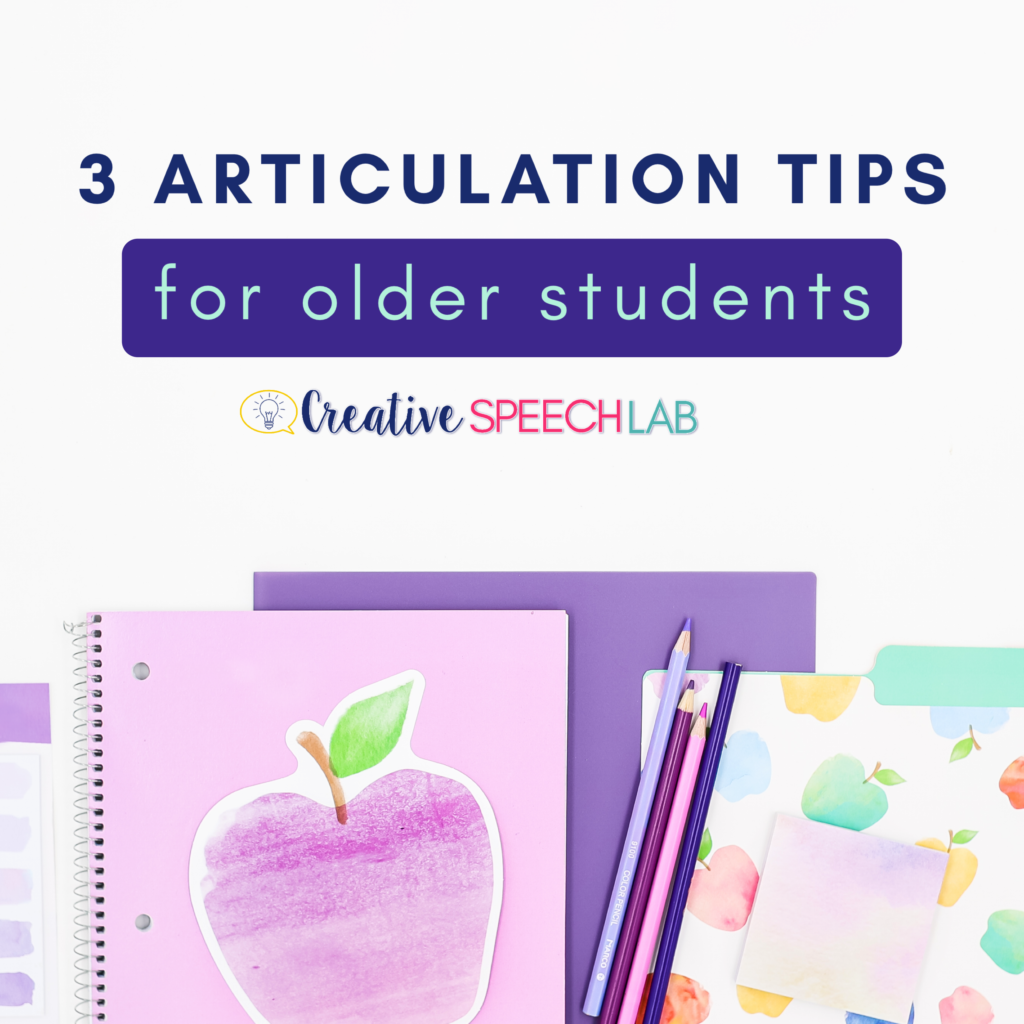The experience of helping your older students with their articulation can be quite a bit different than working with younger children.
Your older students are likely to have been receiving speech therapy for a number of years. In addition, they probably have fewer peers in need of it, which could lead to feelings of vulnerability or frustration.
Today I’m sharing some tips and special considerations you can take into account as you work with your upper elementary, middle or high school students on their articulation skills!
Hit the Refresh Button
Since your students have likely been in articulation therapy for several years, revisit their file. Identify which areas have been targeted and the strategies that have been used over time. Explore a variety of therapy approaches with a stimulability assessment.
While it may seem a bit backward to conduct a stimulability assessment and file review (since they tend to occur at the beginning of the therapy process), remember that students change as they grow older. As children develop, their ability to self-monitor improves and they become stronger abstract thinkers, which means they might respond well to more conceptual strategies now. Taking the time to revisit these areas can definitely refresh and revitalize your therapy.
Re-think your Stimulus Words
Chances are, your older students working on the /r/ sound, do not frequently say words like “raccoon” or “radio.” More likely, they use greetings like “good morning” and say their friend’s name “Chris.” Use relevant stimulus word lists from their daily lives or from helpful vocabulary.
Provide Extra Encouragement
The pre-teen and teenage years can filled with a lot of emotional ups and downs. Your older articulation students likely feel vulnerable and self-conscious, so it is extra important to try to counteract that with support and encouragement. I’ve found that these articulation affirmations are helpful for students to practice, so that they can remain positive and hopeful as they take on challenges.
What has helped you the most as you’ve worked on articulation goals with your older students?
If any of these ideas resonated with you, check out this Older Student Articulation Bundle for a little extra help!



